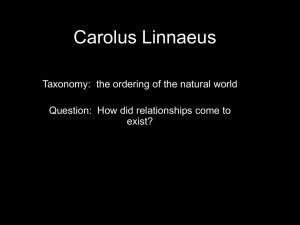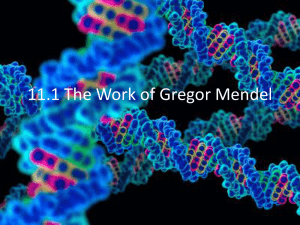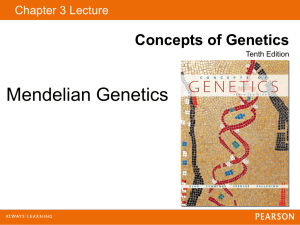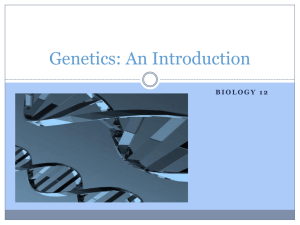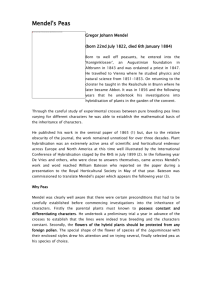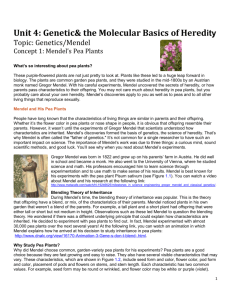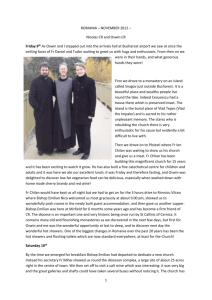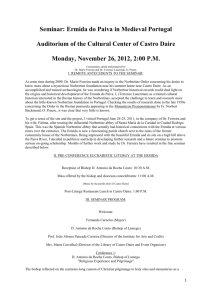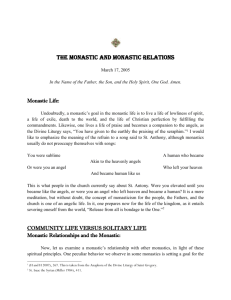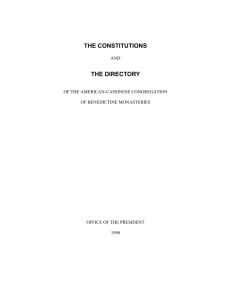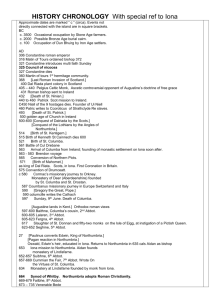Gregor Mendel - Quodvultdeus
advertisement
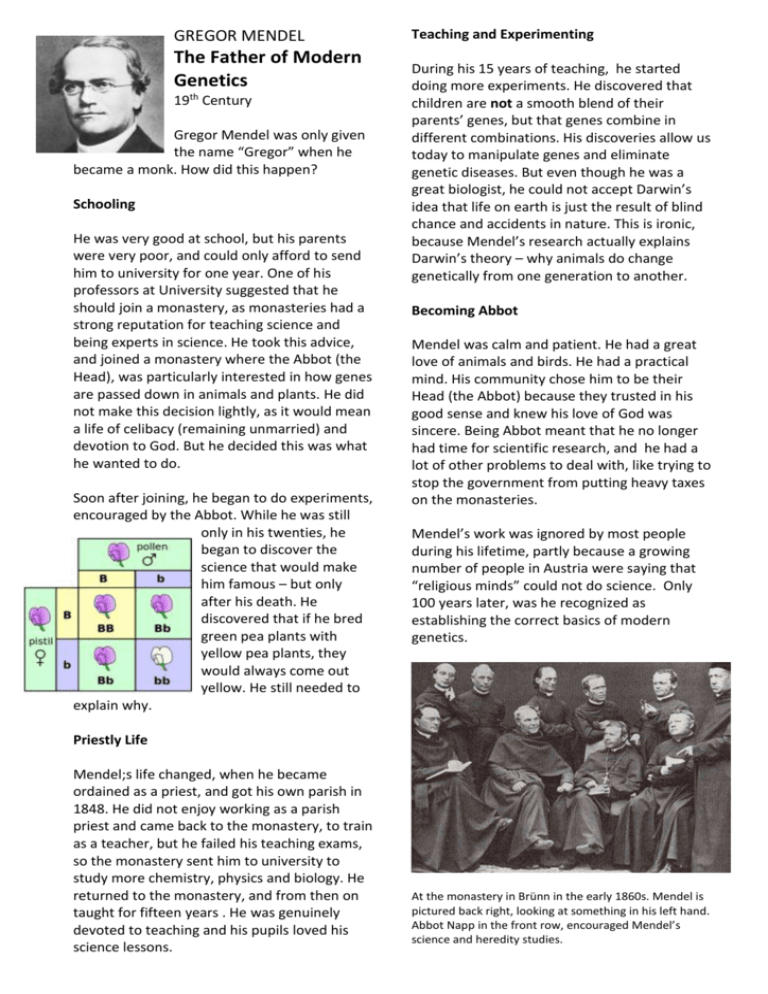
GREGOR MENDEL The Father of Modern Genetics 19th Century Gregor Mendel was only given the name “Gregor” when he became a monk. How did this happen? Schooling He was very good at school, but his parents were very poor, and could only afford to send him to university for one year. One of his professors at University suggested that he should join a monastery, as monasteries had a strong reputation for teaching science and being experts in science. He took this advice, and joined a monastery where the Abbot (the Head), was particularly interested in how genes are passed down in animals and plants. He did not make this decision lightly, as it would mean a life of celibacy (remaining unmarried) and devotion to God. But he decided this was what he wanted to do. Soon after joining, he began to do experiments, encouraged by the Abbot. While he was still only in his twenties, he began to discover the science that would make him famous – but only after his death. He discovered that if he bred green pea plants with yellow pea plants, they would always come out yellow. He still needed to explain why. Teaching and Experimenting During his 15 years of teaching, he started doing more experiments. He discovered that children are not a smooth blend of their parents’ genes, but that genes combine in different combinations. His discoveries allow us today to manipulate genes and eliminate genetic diseases. But even though he was a great biologist, he could not accept Darwin’s idea that life on earth is just the result of blind chance and accidents in nature. This is ironic, because Mendel’s research actually explains Darwin’s theory – why animals do change genetically from one generation to another. Becoming Abbot Mendel was calm and patient. He had a great love of animals and birds. He had a practical mind. His community chose him to be their Head (the Abbot) because they trusted in his good sense and knew his love of God was sincere. Being Abbot meant that he no longer had time for scientific research, and he had a lot of other problems to deal with, like trying to stop the government from putting heavy taxes on the monasteries. Mendel’s work was ignored by most people during his lifetime, partly because a growing number of people in Austria were saying that “religious minds” could not do science. Only 100 years later, was he recognized as establishing the correct basics of modern genetics. Priestly Life Mendel;s life changed, when he became ordained as a priest, and got his own parish in 1848. He did not enjoy working as a parish priest and came back to the monastery, to train as a teacher, but he failed his teaching exams, so the monastery sent him to university to study more chemistry, physics and biology. He returned to the monastery, and from then on taught for fifteen years . He was genuinely devoted to teaching and his pupils loved his science lessons. At the monastery in Brünn in the early 1860s. Mendel is pictured back right, looking at something in his left hand. Abbot Napp in the front row, encouraged Mendel’s science and heredity studies.
